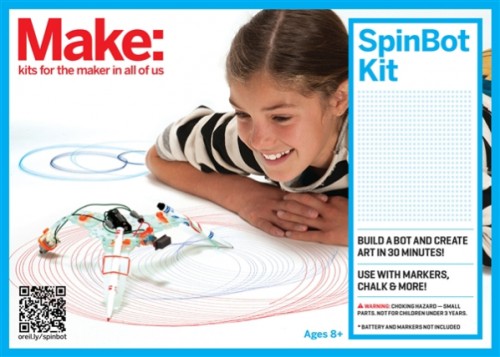From ebooks to digital literacy, there was plenty to debate at the Midwinter meeting of the American Library Association. But the unconference on January 25 revealed clear consensus on one topic: maker spaces. They’re red hot.
“It’s the one thing we can all agree on,” an unconference attendee told this reporter. Indeed, the concept of hands-on programming in libraries—school, academic, or public—appeals to the broad spectrum of information professionals, from techy geeks at one end to traditional handcrafters at the other. After all, “we’ve been doing this in children’s programming for years,” she said.
Put to a vote among unconference participants, “Creative Spaces” won out as the topic of choice (beating by a wide margin digital relevancy, advocacy, and budgeting).
Attendees shared ideas, with an emphasis on low-cost, practical ways to implement “Maker” activities in the library. Much of the conversation urged partnering with other organizations, including:
- Reddit subcommunities. Local groups have formed around social news site Reddit. Consider hosting an event at your library. Or how about Ikea Hackers?
- Your local college or university. Don’t have native expertise among your library staff? Consider reaching out to a technical college or student organization to help lead programming.
- Area crafters. The Greenpoint branch of the Brooklyn Public Library enlisted the local Etsy community to help launch projects, from making zines to bicycle tire art.
- Hacker spaces. From robotics and electronics to wood and metal working, these groups are springing up worldwide.
 Then there are Maker Kits. MAKE magazine is starting with a beta group of libraries, retrofitting their commercially available MAKE kits for checkout by patrons, from grade school kids to adults. The kits include “Getting Started with Arduino,” “Squishy Circuits,” and “Spinbots.”
Then there are Maker Kits. MAKE magazine is starting with a beta group of libraries, retrofitting their commercially available MAKE kits for checkout by patrons, from grade school kids to adults. The kits include “Getting Started with Arduino,” “Squishy Circuits,” and “Spinbots.”
For teens, there’s Maker Camp, a six-week online summer experience with how-to instruction for completing 30 projects in 30 days. This year, Maker Camp runs from July 8 to August 16. To register and see the projects from the 2012 Camp, visit the page “Maker Camp on Google +”
For information about MAKE’s library initiative, email library@makermedia.com.

